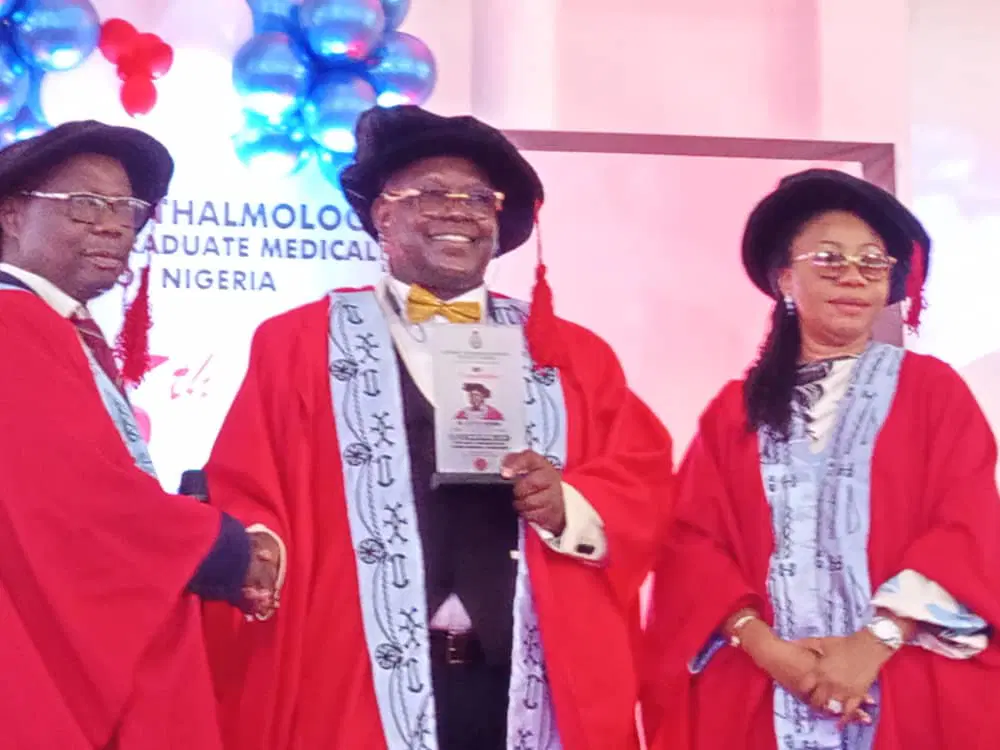
Source: Sola Ogundipe

A renowned consultant ophthalmologist and former Registrar of the Medical and Dental Council of Nigeria, Dr. Festus Oshoba, has cautioned Nigerians against harmful traditional eye remedies and emphasized the importance of regular medical eye checkups.
Speaking at the 26th Annual Faculty Lecture of the Faculty of Ophthalmology, National Postgraduate Medical College of Nigeria, Oshoba highlighted that over 50% of the brain’s sensory input comes from the eyes—making vision essential to productivity, learning, and national development.
In his lecture titled “Force Majeure, Masquerades, and the Attainment of Universal Eye Care in Nigeria”, Oshoba warned against the use of unsafe substances such as breast milk and urine as eye treatments—practices which, he said, often result in irreversible damage.
“The eye is the light of the body… In a country aiming to rank among the world’s best economies by 2030, everyone needs to see clearly to contribute meaningfully,” he stated.
He encouraged those who use digital screens regularly to consult eye doctors for assessments, noting that discomfort from uncorrected vision problems can impair work performance.
Dr. Oshoba stressed that common but treatable eye conditions like red eyes, infections, and itching should be taken seriously and not masked with harmful alternatives. He urged policymakers to prioritize universal eye care, integrating it into Nigeria’s broader development agenda.
“Eye health is not just a medical concern. It is a national imperative,” he emphasized.
He also advocated for increased public awareness campaigns, eye protection strategies—such as the use of photochromatic lenses—and better access to ophthalmologic services.
In a significant gesture to strengthen eye care services, Dr. Tunji Olowolafe, Chancellor of Ekiti State University, announced a $125,000 donation to the college to establish a surgical simulation centre. The lab will be equipped with high-fidelity surgical tools and training simulators, specifically tailored to cataract and oculoplastic surgeries.
“This center will address the critical shortage of ophthalmologists in Nigeria—currently only 454 for a population of over 220 million,” Olowolafe said.